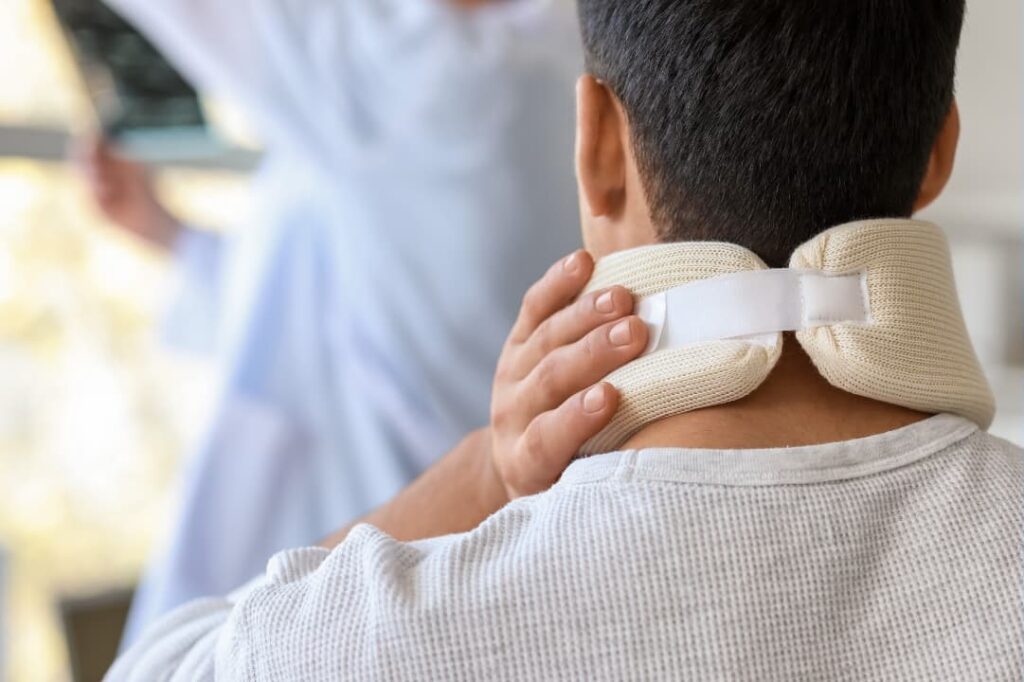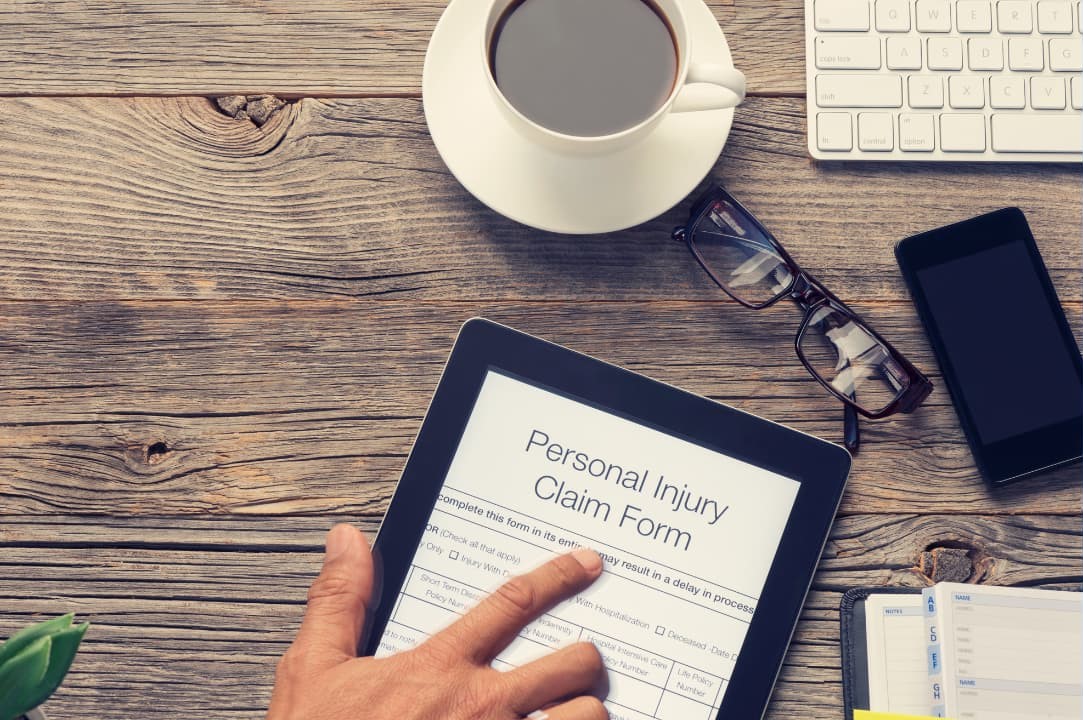Across the US, there are statutes of limitations in place for personal injury cases. Although that may seem frustrating for victims who seek justice, these laws are in place to protect both plaintiffs and defendants.
In Indiana, the statute of limitations protects people from getting blindsided by frivolous lawsuits decades after an accident supposedly occurred. This state code also allows victims to seek swift justice, and gives them more than enough time to file a legal personal injury claim.
So, how can this law impact your own personal injury case? How can a lawyer in Indiana ensure that your claim is filed before time runs out?
Let’s unpack how the statute of limitations influences personal injury cases.

What is a statute of limitations?
A statute of limitations regulates the amount of time a plaintiff can file a case against a defendant, and can apply to both criminal and civil cases. However, the settlement period of a personal injury claim may exceed the statute of limitations to file a claim.
If no settlement can be reached and the case goes to court, there’s no limit on time once the trial process begins.
Why do states have statute of limitations laws?
Every state in the US has a statute of limitations on the books. This law allows protection for both victims and defendants. For example, if you were the victim of a hit-and-run accident and are now experiencing exorbitant bills and severe injury, you want to get your lawsuit filed as quickly as possible.
Conversely, imagine you own a public-facing, thriving business. Shockingly, you’re hit with a catastrophic injury lawsuit that claims you are liable for premises gross negligence committed in 2003, but the claim was filed in 2023. The law protects you from this type of legal action, and this claim would no longer hold merit.

Is the statute of limitations the same in every state?
Although every state regulates the time window on filed criminal and civil claims, the statute of limitations varies based on the state and the case. However, no state has a statute of limitations that exceeds six years, and most states require personal injury claims to be filed within two years.
Here’s a look at some time regulations for personal injury cases:
- Alabama, 2 years
- Arkansas, 3 years
- Colorado, 2 years, 3 years for car accident claims
- Illinois, 2 years
- Louisiana, 1 year
- Maine, 6 years
- Michigan, 3 years
- Missouri, 5 years
- Ohio, 2 years
- Wyoming, 4 years
What is the statute of limitations in Indiana?
Indiana state code § 34-11-2-4 mandates that any personal injury claim is filed within two years of the date of the injury. If you fail to begin the claims process before the statute of limitations runs out, you may find you have no legal merit to pursue compensation.
However, there are several exceptions to this statute. If the victim in the claim was a minor or was mentally incapacitated when the injury occurred, they may wait longer to begin pursuing their personal injury case.
Similarly, if a named defendant does not respond to a claim within the statute of limitations, the victim may be given a time extension to file their lawsuit.
How can an Indiana personal injury lawyer help?
If you choose to retain an Indiana personal injury lawyer to help you file your lawsuit, it’s important that you research attorneys in your area and come to your initial consultation meeting with prepared questions.
Once you choose to begin the journey with your personal injury case, your attorney can take over the legal reins and handle all of your paperwork for you. They will ensure that your case is filed before the two year statute of limitations runs out.
An Indiana personal injury lawyer can also help you:
- Explore the merits of your case
- Collect evidence to strengthen your personal injury case
- Calculate the damages you should seek
- Prove liability of the at fault party
- Interview witnesses (including eyewitnesses and expert witnesses)
- Represent you in any negotiations and mediation meetings
- Fight for you in court (should your case go to trial)
Does the statute of limitations apply to all cases and damages?
Aside from the aforementioned exceptions to the rule, the statute of limitations in Indiana for personal injury cases applies to all personal injury cases — regardless of the severity of your injuries or what damages you claim in your lawsuit.
Types of personal injury damages
Legally, damages refer to the compensation awarded for both your quantifiable and immeasurable losses. In a personal injury case, damages are usually broken into two categories: economic damages (also known as special damages) and non-economic damages (also known as general damages).
Although you must file your claim before the statute of limitations runs out, you must also account for ongoing costs or future damages. This is especially pertinent in catastrophic injury lawsuits in South Bend, where the impact of a severe injury, such as one to the spinal cord, can resonate throughout a lifetime.
In the tragic event of a wrongful death, the expertise of wrongful death lawyers in South Bend becomes indispensable. They understand the profound urgency and sensitivity required in these cases and can ensure the lawsuit is filed within Indiana’s legal time frames.
Similarly, spinal cord injury lawyers in South Bend are crucial when seeking justice for such life-altering harm. They are adept at calculating the full extent of current and future damages, ensuring that victims or their families receive the comprehensive compensation they need to manage the long-term effects of such devastating injuries.
An Indiana attorney can meet with you and help calculate the damages you might seek.
Examples of damages in a personal injury case
Often, the damages you claim in a personal injury case will fall under both the economic and non-economic categories. If you’re unsure of how to qualify your losses, an attorney can help.
Some of the most common damages sought in a personal injury case include:
- Catastrophic injury
- Emotional distress
- Lost wages
- Loss of quality of life
- Medical expenses
- Pain and suffering
- Property repair costs
- Reduced earning potential
- Wrongful death

Common injuries seen in Indiana personal injury cases
Regardless of whether the injuries you suffered at the hands of another are minor or severe, you may be entitled to compensation. However, it’s vital that you file your claim before the statute of limitations runs out. Although each case is different, here are some of the most common injuries associated with a personal injury claim:
- Bone bruises
- Concussion
- Emotional trauma
- Eye injuries
- Facial injuries
- Fractures
- Hematomas
- Hearing or vision loss
- Loss of limb
- Paralysis
- Skull fractures
- Spinal cord injuries
- Traumatic brain injuries (TBIs)
Get Help From an Indiana Personal Injury Lawyer
The statute of limitations in personal injury cases gives you ample time to file your claim. However, as you begin the journey toward healing, you shouldn’t have to worry about filing mountains of documentation or stress over time-sensitive legal deadlines.
You might need a personal injury lawyer who can take on the paperwork for you. At Yosha Law, we are passionate about finding justice for our clients — their stories and their recovery matter deeply to us.
Connect with us today for an obligation-free consultation.






